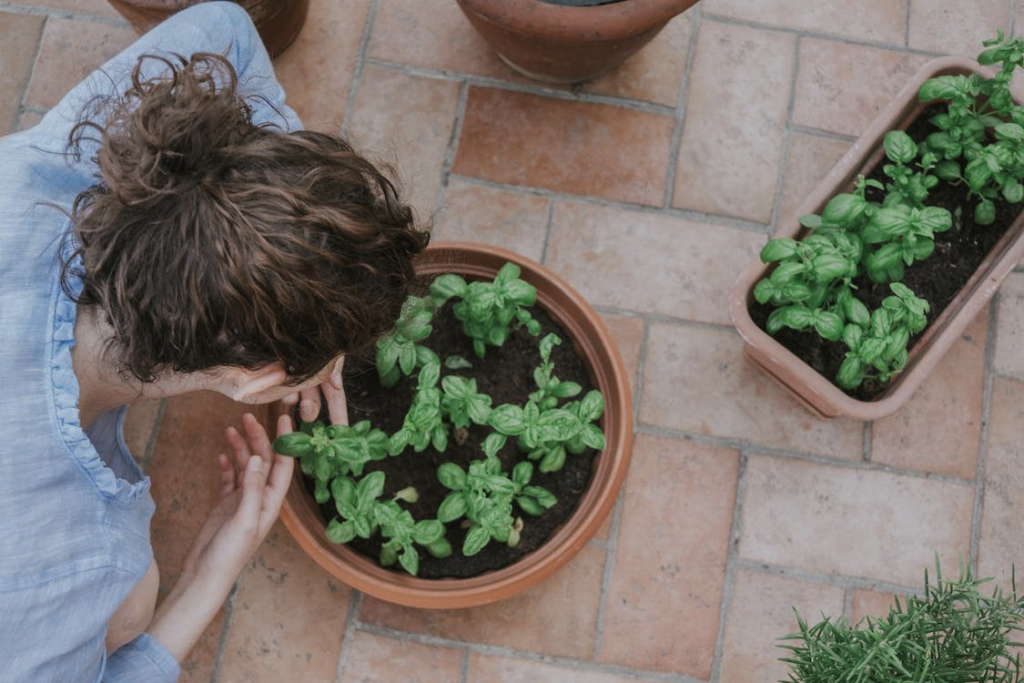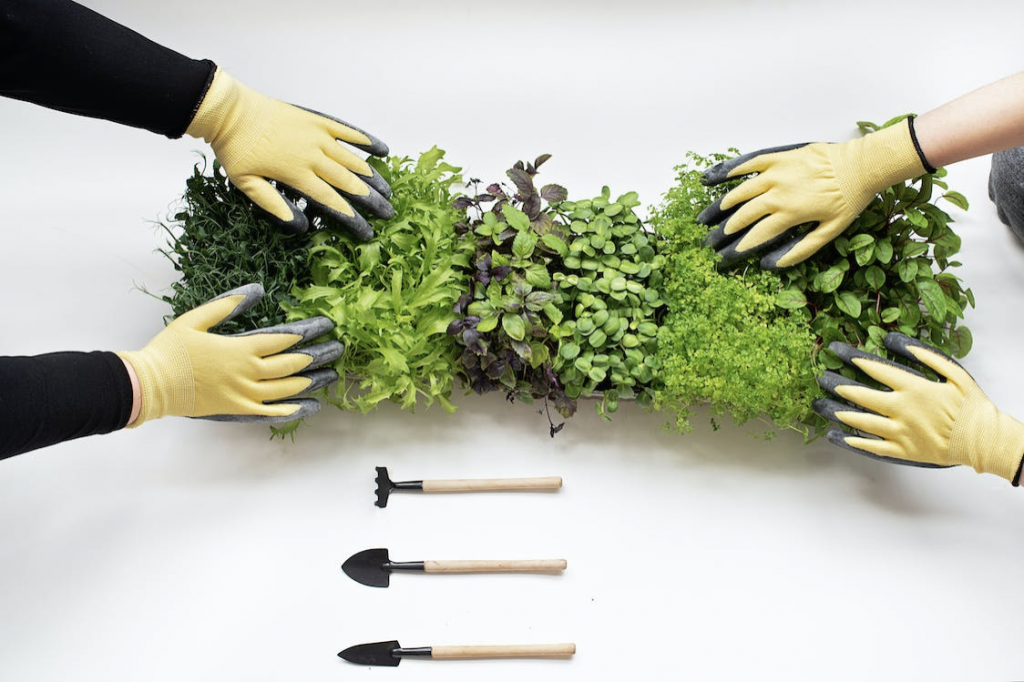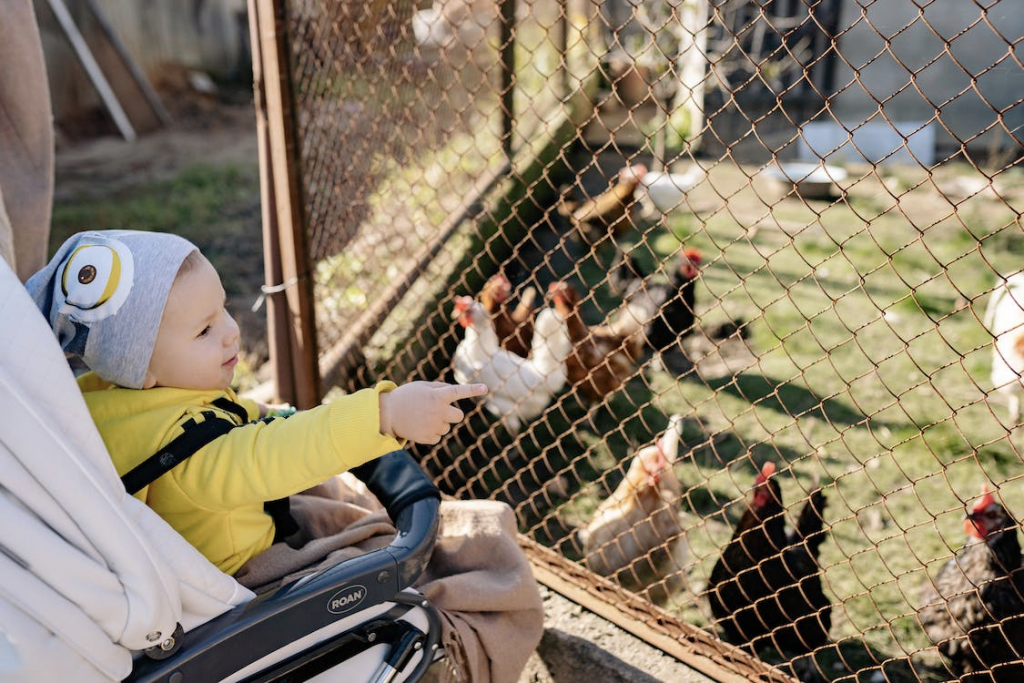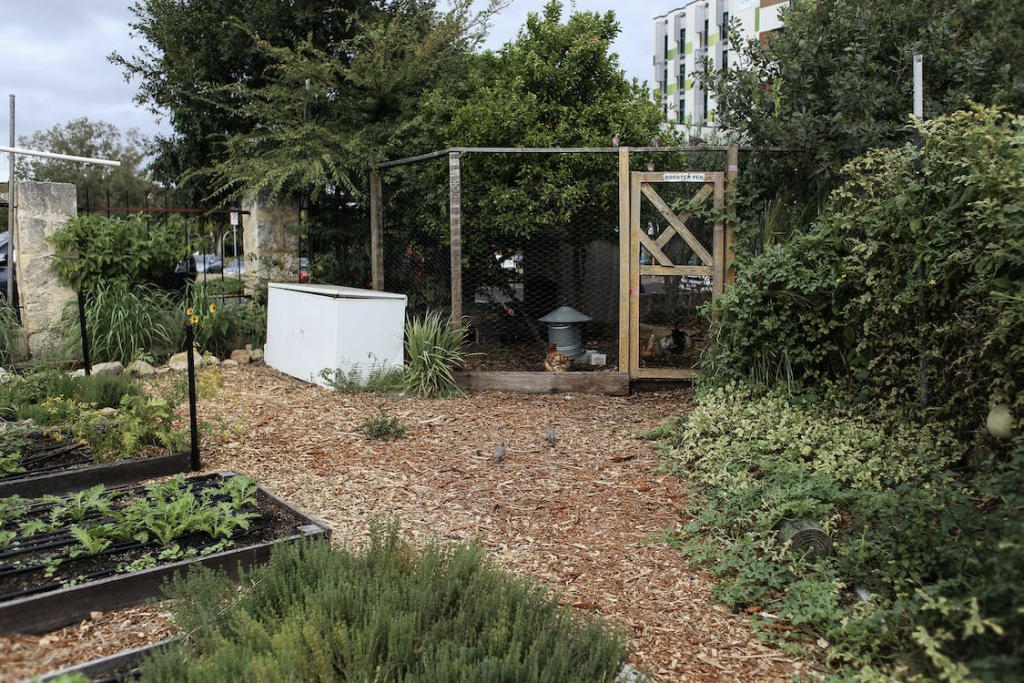
Photo by Matteo Badini from Pexels: https://www.pexels.com/photo/person-holding-green-plant-on-brown-pot-4496368/
Herb gardening is a rewarding and enjoyable hobby that provides fresh, flavorful ingredients for your kitchen. Starting an herb garden might seem intimidating as a beginner, but with the right tips, tricks, and tools, you’ll quickly discover how easy and satisfying it can be.
In addition to herb gardening, raising chickens in your garden can provide numerous benefits, such as natural pest control, organic fertilizer, and a sustainable source of fresh eggs. To get you started, let’s explore the basics of herb gardening for beginners and discuss the advantages of raising chickens in your garden.
Tips and Tricks for Herb Gardening for Beginners
Before diving into herb gardening, learn how to choose the right herbs and the best location for planting, as well as the proper way to care for your plants.
Start with easy-to-grow herbs
As a beginner, choose low-maintenance herbs that are easy to grow, such as basil, parsley, cilantro, mint, and chives.
Choose the right location
Most herbs need at least 6–8 hours of sunlight per day. Ensure your herb garden receives adequate sunlight outdoors or near a sunny windowsill indoors.
Use well-draining soil
Herbs thrive in well-draining soil. Use a high-quality potting mix with added perlite or vermiculite for better drainage and aeration.
Proper watering
Overwatering can be harmful to herbs. Allow the soil to dry slightly between watering and ensure proper drainage to prevent root rot.
Use appropriate containers
If growing herbs in containers, choose pots with drainage holes. This helps prevent overwatering and allows excess water to escape.
Prune regularly
Regularly pruning and pinching back herbs promotes bushier growth and higher yields.
Harvest correctly
Harvest herbs in the morning when their essential oil content is highest. Avoid taking more than one-third of the plant at a time to allow for regrowth.
Fertilize sparingly
Most herbs don’t require a lot of fertilization. Use an organic, slow-release fertilizer, and avoid over-fertilizing to prevent excessive growth and reduced flavor.
Pest management
Regularly inspect your herbs for signs of pests or diseases. Use organic methods, such as neem oil or insecticidal soap, to treat infestations.
Label your herbs
Label each herb in your garden to help you identify them and remember their specific care requirements.
Learn from experience
Herb gardening is a learning process. Take notes, observe how your herbs grow, and adjust your care routine based on your observations and experiences.
Use quality gardening tools
Invest in quality gardening tools such as pruning shears, trowels, and watering cans for a better gardening experience and improved plant care.
Essential Tools for Herb Gardening

Photo by Mikhail Nilov from Pexels: https://www.pexels.com/photo/microgreens-on-white-table-8543138/
Tools are essential to make herb gardening more efficient, effective, and enjoyable. Check if you have these tools in your garden:
- Trowel: A small hand trowel is essential for digging small holes, transplanting herbs, and loosening the soil around plants.
- Pruning shears: A good pair of pruning shears helps trim and harvest herbs and remove dead or diseased leaves.
- Watering can or hose: A watering can with a fine rose attachment or an adjustable hose nozzle is crucial for providing a gentle and even distribution of water to your herbs.
- Gardening gloves: Gloves protect your hands from soil, thorns, and potential skin irritants while working in the garden.
- Hand rake: A small hand rake is useful for breaking up soil, leveling planting beds, and removing debris.
- Garden spade: A garden spade helps turn over soil and create new planting beds.
- Plant labels: Labeling each herb helps you remember their names and specific care requirements.
- Garden knife: A garden knife, also known as a hori hori, can be used for various tasks, such as weeding, transplanting, and cutting through roots.
- Soil scoop: A soil scoop helps transfer soil or potting mix to containers or planting beds.
- Containers with drainage holes: For container gardening, choose pots with proper drainage to prevent overwatering and root rot.
- Gardening apron or tool belt: An apron or tool belt with pockets keeps your tools organized and easily accessible while working in the garden.
- Fertilizer: A slow-release, organic fertilizer provides essential nutrients to your herbs without overloading them.
These are the basic tools that herb gardening beginners need to get started. As you gain experience and expand your garden, you may want to invest in additional tools and equipment to make the process more efficient and enjoyable.
Raising Chickens in Your Garden: Benefits for You and Your Herbs

Photo by Yan Krukau from Pexels: https://www.pexels.com/photo/baby-pointing-a-finger-at-chickens-5789138/
Raising chickens in your garden is a sustainable and rewarding way to enhance your garden and herb growth. They provide natural pest control and organic fertilizer, fresh eggs, tilling and weed control, compost contributions, educational opportunities, reduced food waste, and companionship. Here are some benefits of raising chickens in your garden and how they can positively impact your gardening experience.
Natural pest control
Chickens love to eat insects and can help control pests in your garden. They’ll happily scratch around and feast on pests like slugs, snails, and aphids, reducing the need for chemical pesticides.
Organic fertilizer
Chicken manure is an excellent source of organic fertilizer. It’s rich in nitrogen, phosphorus, and potassium, which are essential nutrients for plant growth. By allowing your chickens to roam in your garden, their droppings will enrich the soil and promote healthy herb growth.
Fresh eggs
Raising chickens in your garden means you’ll have access to fresh, organic eggs. Homegrown eggs are tastier and more nutritious than store-bought varieties, as they contain higher levels of vitamins, minerals, and omega-3 fatty acids.
Tilling and weed control
Chickens naturally scratch the ground, which can help till the soil and control weeds in your garden. By allowing them to forage in designated areas, you can take advantage of their natural behavior to maintain a healthier garden.
Compost contribution
Chicken manure, feathers, and bedding materials can be added to your compost pile, enriching it with valuable nutrients that can be returned to the garden.
Educational opportunities
Raising chickens in your garden can be a great educational experience, especially for children. It teaches them about sustainable living, animal husbandry, and the importance of local food production.
Reduced food waste
Chickens can help reduce your household’s food waste by consuming kitchen scraps such as fruits, vegetables, and grains. In return, they’ll provide you with nutrient-rich manure to nourish your garden.
Enjoyment and companionship
Chickens are entertaining and social creatures, providing enjoyment and companionship to their caretakers. They each have unique personalities and can be quite affectionate, making them a delightful addition to your garden.
Getting Started with Raising Chickens in Your Garden

Photo by Rachel Claire from Pexels: https://www.pexels.com/photo/vegetable-garden-and-a-chicken-shed-outside-city-5864220/
There are a few important steps to take before bringing home your new feathered friends. From researching local regulations to providing adequate housing and a balanced diet, here’s how you can start on the right foot and ensure the health and well-being of your chickens.
Research local regulations
Before getting chickens, check your local laws and regulations to ensure that you’re allowed to keep them and to determine any specific requirements for their care.
Choose the right breed
Select chicken breeds that are suitable for your climate and that meet your specific needs, whether it be egg-laying, meat production, or ornamental purposes.
Provide adequate housing
Chickens require a secure and comfortable coop that provides shelter from the elements and nesting boxes for laying eggs, and roosting bars for sleeping. Consider getting an egg incubator to hatch eggs without relying on a broody hen.
Ensure proper fencing
Invest in high-quality, secure poultry fencing around their coop and garden foraging area to protect your chickens from predators and prevent them from wandering into unwanted areas.
Offer a balanced diet
Provide your chickens with a balanced diet, including high-quality chicken feed, access to grit for digestion, and clean, fresh water daily.
Practice good hygiene
Keep the chicken coop clean and well-maintained to prevent the spread of diseases and pests. Regularly remove manure and replace bedding materials as needed.
Monitor health and well-being
Regularly check your chickens for signs of illness or injury, and consult with a veterinarian if you notice any issues.
Conclusion
Herb gardening can be a fulfilling and enjoyable experience, whether you’re a seasoned gardener or a beginner. With the right tips, tricks, and tools, you’ll soon be reaping the benefits of your very own herb garden.
Furthermore, raising chickens alongside your herb garden can provide numerous advantages, including natural pest control, organic fertilizer, and fresh eggs. Follow the guidelines and advice in this article, and you’ll be well on your way to creating a thriving, sustainable garden that rewards you with bountiful harvests and endless enjoyment.
